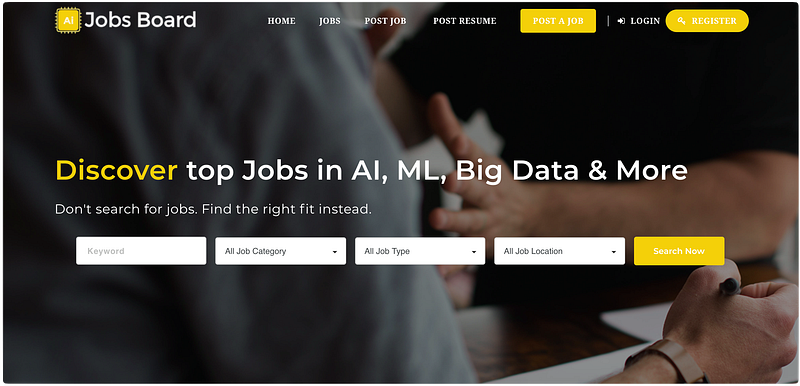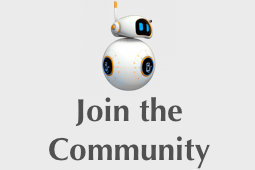The world we live in…is anything but normal.
It’s become so natural and expected to be able to predict the weather for weeks at a time. To speak with someone on the other side of the world, buy things without physical exchanges; record every sound and image of everyday.
It’s no longer an exciting event to hear or see a massive machine fly overhead or for a watch to read your fingerprint and connect you to all the information that the human race has access to.

For us, living in this day and age, these devices, tools, machines, are nothing more than mainstream. But take a step back, barely 2 decades ago, and it is blatantly clear how unusual an age we live in.
When I was a child, I could easily recall my Aunt using a wall phone, complete with an endlessly long coiled line connecting it to the base. I recall going outside to learn how to use a Polaroid camera and how exciting it was to shake the picture and wait to see the image. Nowadays I could snap 30 pictures have them instantly in less time.
In middle school, I (had to write a paper and it had to be typed in order to it to be turned in. Well, we did have a computer (if you can still call those 50lbs hunk of beige parts a computer) but did not have a printer. So my Aunt gave me a typewriter and I got to it. Now, 10 years later, I could speak my essay into my phone, have it converted to text, edit it, print a copy via Bluetooth, and still instantly send it to my teacher and peers via an online dropbox. It’s a bit head spinning to say the least and truly a testament to our generation for being able to rapidly adapt to these changes. Yes, humankind always changes for “change is the only constant in life” and there have been many amazing inventions our species has created to revolutionize the world.
The wheel, the plow, the printing press, the clock, and more recently, the plane, telegraphs, light bulbs, and even the transistor. There are so many things being created that the United States Patent Office indicates that 589,410 patents were submitted in 2015 (with 51.1% being from overseas) versus the 85,869 in 1693 (with 23% being overseas).
Top 4 Most Popular Ai Articles:
1. Natural Language Generation:
The Commercial State of the Art in 2020
4. Becoming a Data Scientist, Data Analyst, Financial Analyst and Research Analyst
Now take a look a little further back in time from my own childhood. Although not as many people as previously in history, there are still many people who have lived a century in this world. Can you imagine what it would be like to live through this many and more revolutions in technology and society through your lifetime? To grow up farming and hunting/fishing for your food to go to ordering anything, from anywhere, anytime. To write letters by hand by oil lamp and go to sending and receiving messages instantly via text. To rarely leave your hometown as public transportation, still developing, was extremely expensive and few and far between versus hopping in an Uber to take you to catch a same day flight across the country. And yet we get so cranky when our grandparents ask use how to use Microsoft Paint.
It’s like asking us to reprogram an Alien spaceship without even being literate in our own right.
But the real question is: how is this fast paced, constantly changing technology and the resulting society really affecting us, not just as users, but as people?
The obvious and most rampant talking points of course are: Social Media, Artificial Intelligence, E-Commerce, Self-Driving Vehicles, Body Augmentation, Privacy Concerns and so, so many more things tipping us on the edge between Utopia and Dystopia.
But looking deeper than that, I find that these concepts boil down to affecting 3 main areas. Our Sanity. Our Strength. Our Humanity. Also known as our “Mind, Body, and Soul.”
“The mind is a terrible thing to waste”. And yet here we are, spending all of our time staring at screens and unable to set down our smartphones. Unable to walk or drive without music blaring. Often times not even knowing where we are, what time it is, or what to do with ourselves without checking for instructions from our phones. A study from King University shows that 50% of young adults admit to cell phone addiction.
Big Data Jobs
The reliance on tech is not giving us room to grow our minds, despite having almost infinite knowledge literally to out fingertips. And while it is a wonderful feat to be able to connect to everyone everywhere, there is also pressure that comes alongside that.
Not really knowing who someone is and who to trust, blindly following social stigmas, and basing ourselves off of the media.
How long can a mind hold up against the pressure and stress of just living in the modern age?
Is it any wonder that the World Health Organization states that 1 in 4 people will have mental illness (anxiety, depression, schizophrenia, epilepsy, suicidal thoughts, etc.) within their lifetime? We may be incredibly resilient beings, we humans, but even we can only carry so much on our shoulders…
Recently I’ve gotten very in to “The Walking Dead” and one of the recurring themes is “Only the strong survive” and it makes me wonder, if we were to have a Zombie Apocalypse, how many of us would survive? So few have lasted through that show (at least to Season 6 where I am) and that was set in a time before so man of the advanced tech that we have available to us now. Yes several of the things we have now may do a lot of counter that but if electricity were to be turned off, then what? We wouldn’t know how to find food or shelter, how to defend ourselves, or even how to have a basic conversation with someone new without first doing a bit of Facebook stalking on them. It’s hard to think that we’d be able to protect and take care of ourselves without the conveniences that living in the digital age, the “Internet Age”, has allowed us.
And without the stability of the mind and the brawn of the body; all that is left is the Soul (Spirit, Essence, True Self, Unconsciousness, etc.) or whatever you see as who you are as a being. Your Humanity. We are separated from the animals by our ability to rationalize, think ahead and beyond, create, innovate…How long will it be before we give those traits over to the machines? What then will we be left with? Will there be anything left?
Is there anything we can do to save ourselves?
The crazy things is, despite all this, I am such a firm believer in advancing technology as far as we are able and more. Because we need to evolve and progress as humans. It is who we are and what we do.
We adapt.
It is what has kept us alive and thriving since the beginning and it is that which will keep us moving forward into the future. Just like the plot of many a Sci-Fi story; the technology is only dangerous if it gets in to the wrong hands.
But beyond, and before that, we have to take the necessary steps in considering the potential benefits and consequences of a new technology before conception. For, if we don’t consider the bad that could come from something we create, then who can we blame but ourselves?
“Life is a series of building, testing, changing, iterating”7 and it is through that that we’ll be able to go above and beyond even our own wildest imaginations while holding onto that which makes us, well, us.
Our Sanity, Strength, and Humanity.
-
Graham, D. W. (2015, June 23). Heraclitus. Retrieved from https://plato.stanford.edu/entries/heraclitus/
-
U.S. Patent Statistics Chart Calendar Years 1963–2015. (2019, June). Retrieved from https://www.uspto.gov/web/offices/ac/ido/oeip/taf/us_stat.htm.
-
Howard, R. (Director). (2002). A beautiful mind[Video file]. United States: Universal Pictures.
-
Hussung, T. (2017, July 27). Cell Phone Addiction: Stats and Signs | King University Online. Retrieved from https://online.king.edu/news/cell-phone-addiction/
-
W. (2013, July 29). Mental disorders affect one in four people. Retrieved from https://www.who.int/whr/2001/media_centre/press_release/en/
-
Spencer, H. (1894). The principles of biology. London: Williams and Norgate.
-
Tehrani, M. (2017, December 11). 10 Inspiring Quotes from Women in Tech. Retrieved from https://hackbrightacademy.com/blog/happy-international-womens-day-10-inspiring-quotes-women-tech/




